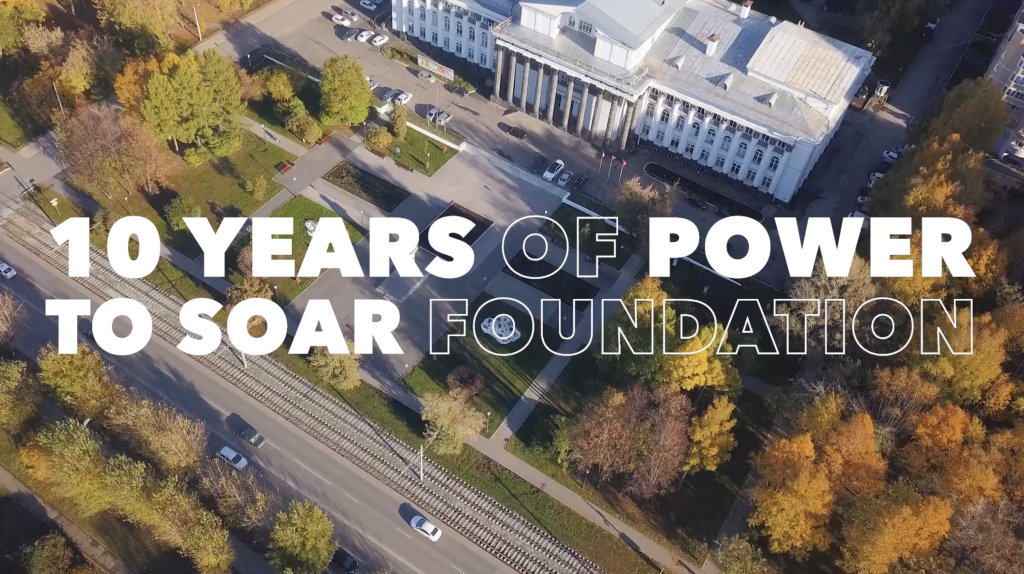Becoming a foster parent is one of the most impactful ways you can make a difference in a child’s life. Foster parents provide temporary homes for children who can’t live with their birth families, offering stability and care during challenging times. This role isn’t just about providing shelter; it’s about nurturing and guiding children through emotional and developmental hurdles.
You don’t need to be a superhero to be a foster parent, but you do need a big heart and a willingness to learn. The foster care system relies on compassionate individuals like you to step up and offer a safe and supportive environment. Whether you’re considering fostering for the first time or looking to understand the process better, this guide will walk you through the essentials of what it means to be a foster parent.
Key Takeaways
- Foster Care Basics: Foster care provides temporary homes for children unable to stay with their birth families due to circumstances like abuse, neglect, or family crises. It’s crucial for offering stability and support during transitional periods.
- Eligibility and Requirements: Foster parents must be at least 21 years old, pass a background check, demonstrate sufficient income, and complete a home study. Various marital statuses and living arrangements are eligible.
- Types of Foster Care: There are different types of foster care including traditional foster care (non-relatives) and kinship foster care (relatives or close family friends), each addressing specific needs and maintaining as much emotional stability as possible.
- Responsibilities of Foster Parents: Foster parents are responsible for the child’s daily care, emotional support, educational needs, and maintaining accurate records. They must also participate in legal proceedings and work with caseworkers for the child’s best interests.
- Support Systems: Foster parents receive various forms of support, including financial reimbursement from the state and emotional support from community groups. These resources assist in providing a nurturing environment for foster children.
- Rights of Foster Parents and Children: Foster parents and children have specific rights aimed at ensuring quality care—these include accepting or rejecting placements, regular visits from agency workers, educational rights for children, and the right to participation in case planning.
Table of Contents
What Is Foster Care?
Foster care is a temporary living arrangement for children unable to stay with their biological parents. Various reasons like abuse, neglect, or family crises lead to these circumstances. Children receive care, stability, and support in foster homes until they can either reunite with their parents or find a permanent home through adoption.
Foster parents provide an essential role. They offer a safe, nurturing, and loving environment for children. Ensuring each child has their own bed and sufficient income to meet family needs is crucial. You need to be at least 21 years old and a US citizen or legal resident to qualify as a foster parent. Whether you’re single, married, or cohabiting, you can apply to become a foster parent.

Who Can Become A Foster Parent?
Anyone meeting specific criteria can become a foster parent. Individuals must be committed to providing a safe, supportive home for children in need. Fostering spans various backgrounds, lifestyles, and living arrangements.
Eligibility Criteria
To qualify as a foster parent, certain conditions must be met:
- Age Requirements: You must be 21 or older, though some states allow those aged 18 and up.
- Marital Status: Singles, married couples, same-sex couples, and cohabitating heterosexual couples are all eligible.
- Housing: Whether you rent or own your home, having enough space for children is essential.
- Employment: If you work outside the home, you must ensure your foster child’s daily needs are met.
- Background Check: Passing a criminal background check and obtaining a fingerprint clearance card are necessary.
- Income: You must demonstrate sufficient income to support your family.
- Health: You need to be physically and emotionally healthy, affirmable by a doctor’s statement.
- Home Study: Completion of a home study and home safety inspection is required.
- Initial Inquiry: Contact a local foster care agency for information.
- Orientation: Attend an orientation session to learn more about fostering.
- Training: Complete required training courses that cover essential fostering skills.
- Home Study: Undergo a thorough home study, including interviews and home inspections.
- Approval: Upon successful completion of these steps, receive approval to foster.
Types Of Foster Parenting
Understanding the various types of foster parenting helps you make an informed decision. Each type addresses different needs and offers unique benefits. Here’s a closer look at the primary categories.
Traditional Foster Care
Traditional foster care involves non-relative foster parents caring for children separated from their biological families. These caregivers are unrelated but trained and approved. Often, this placement provides immediate, temporary care to ensure children’s safety and well-being.
- Involvement: Non-relative foster parents engage in temporary or permanent care for children.
- Training: Caregivers must complete state-mandated training programs.
- Approval: Post-training, they receive official approval to foster children.
Kinship Foster Care
Kinship foster care places children with relatives or those they know, like grandparents, aunts, uncles, or close friends. This option keeps children connected to their biological families, promoting emotional stability.
- Placement: Involves placing children with relatives or pre-existing close relationships.
- Preference: Often preferred to maintain familial connections.
- Support: Kinship caregivers receive similar support and resources as traditional foster parents.
Different types of foster care provide unique benefits, ensuring each child’s needs are met, whether through new, approved caregivers or maintaining family ties. Both play crucial roles in offering stable environments for children in need.
Role And Responsibilities Of Foster Parents
Foster parents play a crucial role in providing temporary, safe, and nurturing homes for children unable to stay with their biological parents. Your responsibilities cover a wide range, from daily caregiving to attending legal proceedings.
Day-to-Day Care
Providing a stable and safe environment is a primary duty. Children in foster care often experience trauma, making emotional and physical stability essential. Meeting the child’s physical needs includes ensuring proper nutrition, clothing, and hygiene. Educational responsibilities involve enrolling the child in school and supporting academic progress. Emotional support is critical, requiring you to manage behaviors positively and address any special needs or disabilities the child may have.
Legal Responsibilities
Legal responsibilities involve cooperating with caseworkers and biological parents to achieve a permanency plan, which may include family reunification or adoption. Active participation in meetings, court hearings, and training sessions ensures the best possible care for the child. Maintaining accurate records and reports of significant events and milestones in the child’s life is also essential.
Rights Of Foster Parents And Children
Foster Parents’ Rights
Foster parents play a critical role, and certain rights safeguard their efforts.
Accepting or Rejecting Placement: You can choose to accept or reject a child for placement in your home. This ensures that placements align with your family’s capacity and readiness.
Participating in Pre-Placement Planning: You have the right to engage in pre-placement planning with the agency whenever possible. This collaboration fosters better adjustment and preparation for both you and the child.
Limiting the Number of Foster Children: You can limit the number of foster children placed in your home. Adequate capacity remains essential for providing quality care.
Regular Visits from Agency Workers: Expect regular visits from the child’s agency worker. These visits facilitate a mutual exchange of information and collaborative planning efforts.
Agency Support: You can anticipate agency-wide support for your caregiving responsibilities. Support systems include training programs, access to resources, and emotional backing.
Children’s Rights
Children in foster care have specific rights to ensure their safety and well-being.
Right to Safety and Security: Foster children have the right to live in a safe and secure environment. This principle underpins the entire foster care system.
Educational Rights: They are entitled to an education comparable to their peers. This right includes access to quality schooling and educational support services.
Healthcare Access: Children have the right to adequate healthcare, including regular medical, dental, and mental health services.
Visitation Rights: Foster children maintain the right to visitation with their biological family, unless restricted by a court order. These visits help preserve family connections.
Confidentiality: Foster children have the right to confidentiality regarding their personal history and family background. This respect ensures their dignity and privacy.
Right to Voice Their Views: They can express their views during case planning and court proceedings. This participation empowers them and takes their perspective into account.
Support Available For Foster Parents
Foster parents play a critical role in caring for children in need. Various forms of support exist to ensure success in this challenging role.
Financial Support
Financial support helps alleviate the financial burden of fostering.
- Reimbursement from the State: Foster parents receive state reimbursements covering food, clothing, and other necessities. Amounts vary by state, but federal guidelines ensure basic needs are met (Child Welfare Information Gateway).
- Additional Financial Assistance: Organizations like the Day Dreams Foundation offer scholarships for activities and services benefiting foster children. Scholarships support extracurricular participation, providing children with enriching experiences.
Emotional And Practical Support
Emotional and practical support is vital for fostering success.
- Prayer and Spiritual Support: Spiritual support provides comfort and strength. Many religious communities organize prayer groups and offer moral support, helping foster parents cope with challenges.
Support ensures foster parents have the resources and aid necessary to provide a nurturing environment.
Permanency Plans And Outcomes
Becoming a foster parent is a profound journey that impacts both you and the children you care for. By providing a stable and nurturing environment, you’re playing a vital role in their development and well-being. The ultimate goal is to achieve permanency, whether through reunification with their biological families, adoption, or other long-term arrangements.
Your dedication and commitment can make a lasting difference. With the right support and resources, you can navigate the challenges and rewards of foster parenting effectively. If you’re considering this path, take the first step today. Your compassion could transform a child’s life forever.






